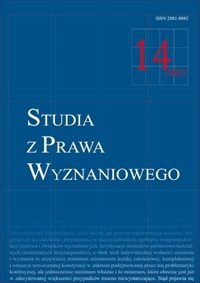Realizacja tolerancji religijnej w XVII-wiecznym Marylandzie
Realization of religious toleration in the seventeenth century Maryland
Author(s): Piotr MichalikSubject(s): Law, Constitution, Jurisprudence
Published by: Katolicki Uniwersytet Lubelski Jana Pawła II - Wydział Prawa, Prawa Kanonicznego i Administracji
Keywords: Maryland; law on religion; freedom of religion; the relations between the state, churches and other religious organizations; religious freedom; church - state relations (United States)
Summary/Abstract: For many historians it is certain that in the seventeenth century Maryland, an English colony founded in America in 1634 by a Catholic, Cecil Calvert, Lord Baltimore, there was religious toleration. It is difficult to disagree with this statement. The oath of the Governor of Maryland from 1648 was the first American legal document which used the famous free exercise clause. Furthermore, An Act Concerning Religion enacted in Maryland in 1649, was the first American legislative act which guaranteed the free exercise of religion to all Christians. However, as far as this paper is concerned, it was not religious toleration that Lords Baltimore finally wanted to achieve. Their real idea was the separation of the church and state. This is the most convincing explanation not only of the seventeenth century Maryland religious laws, but also of the politics of the Lords Baltimore in the field of religious toleration. For instance, the Maryland government persecuted Quakers, after on the base of their religion they refused to take an oath of fidelity to the Lord Baltimore. In contrast to that, not one Quaker or even Jew, who openly denied the divinity of Christ, was punished for blasphemy against the Holy Trinity, which was by the law a capital crime in the seventeenth century Maryland. The reason behind this confusing policy was the realization of the idea of the separation of church and state which guaranteed the secular order in the colony.
Journal: Studia z Prawa Wyznaniowego
- Issue Year: 2011
- Issue No: 14
- Page Range: 47-78
- Page Count: 31
- Language: Polish

